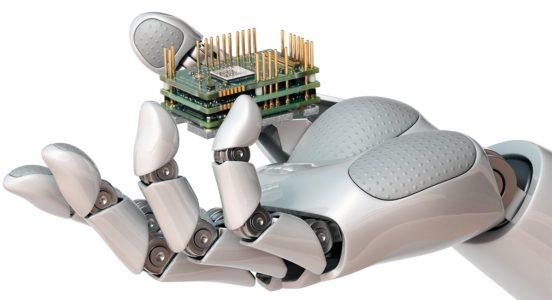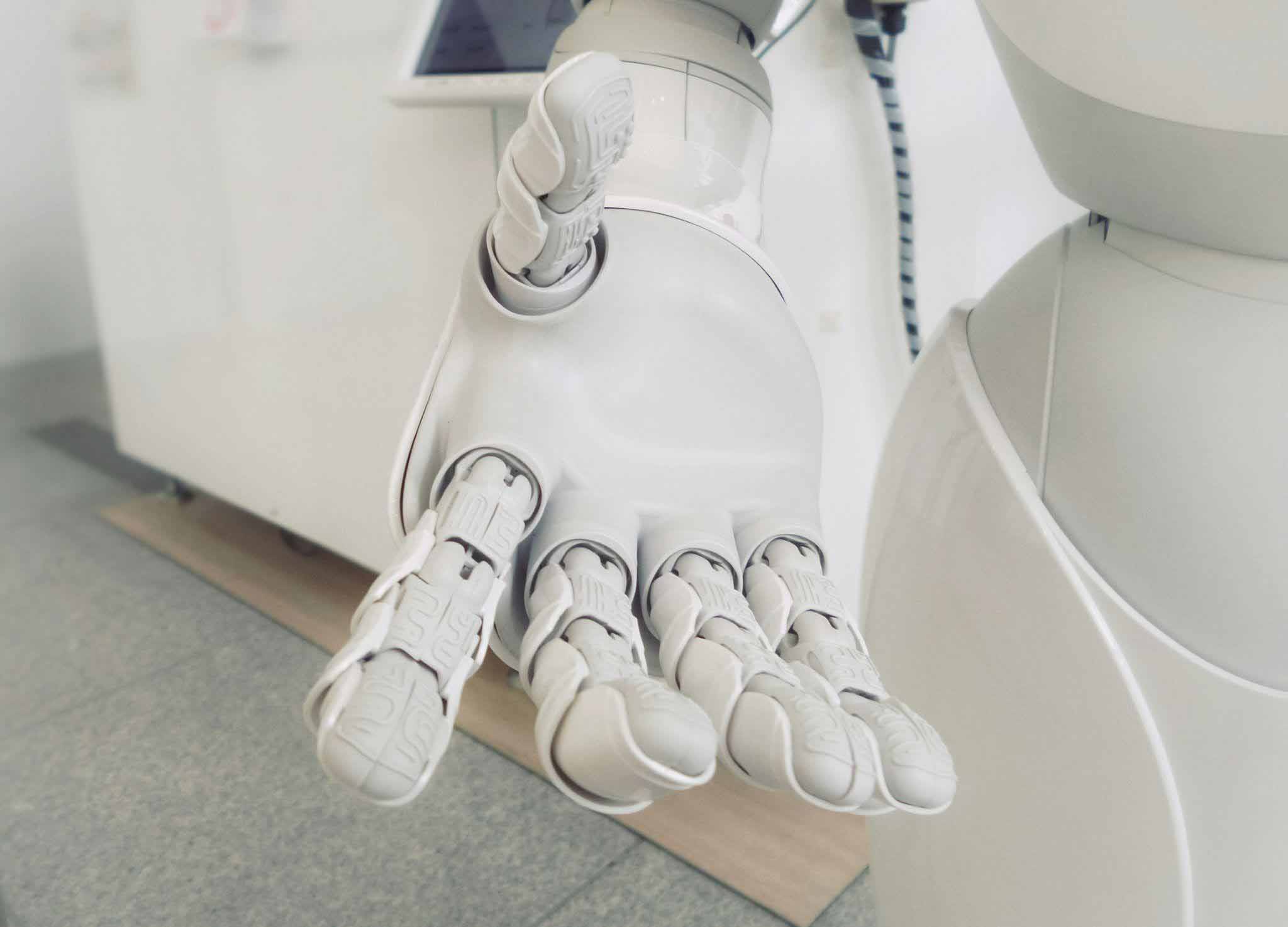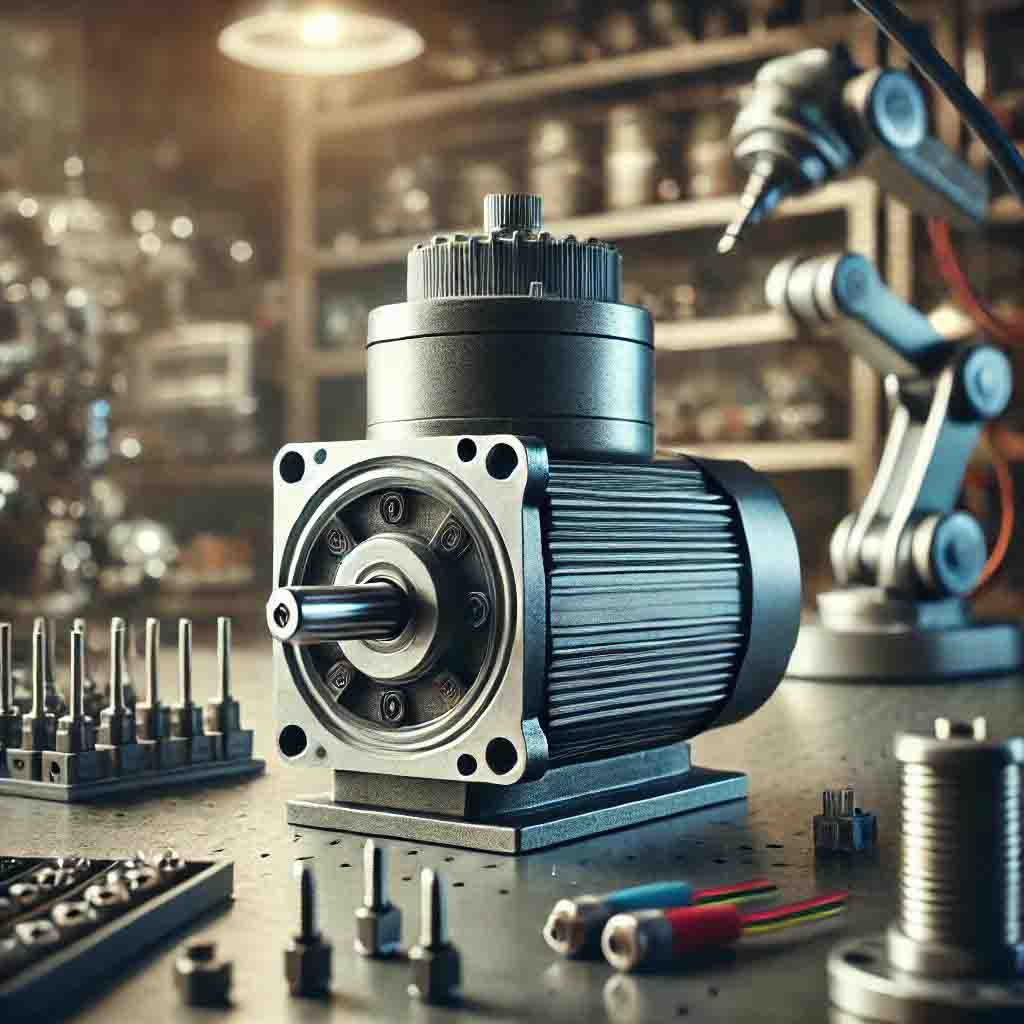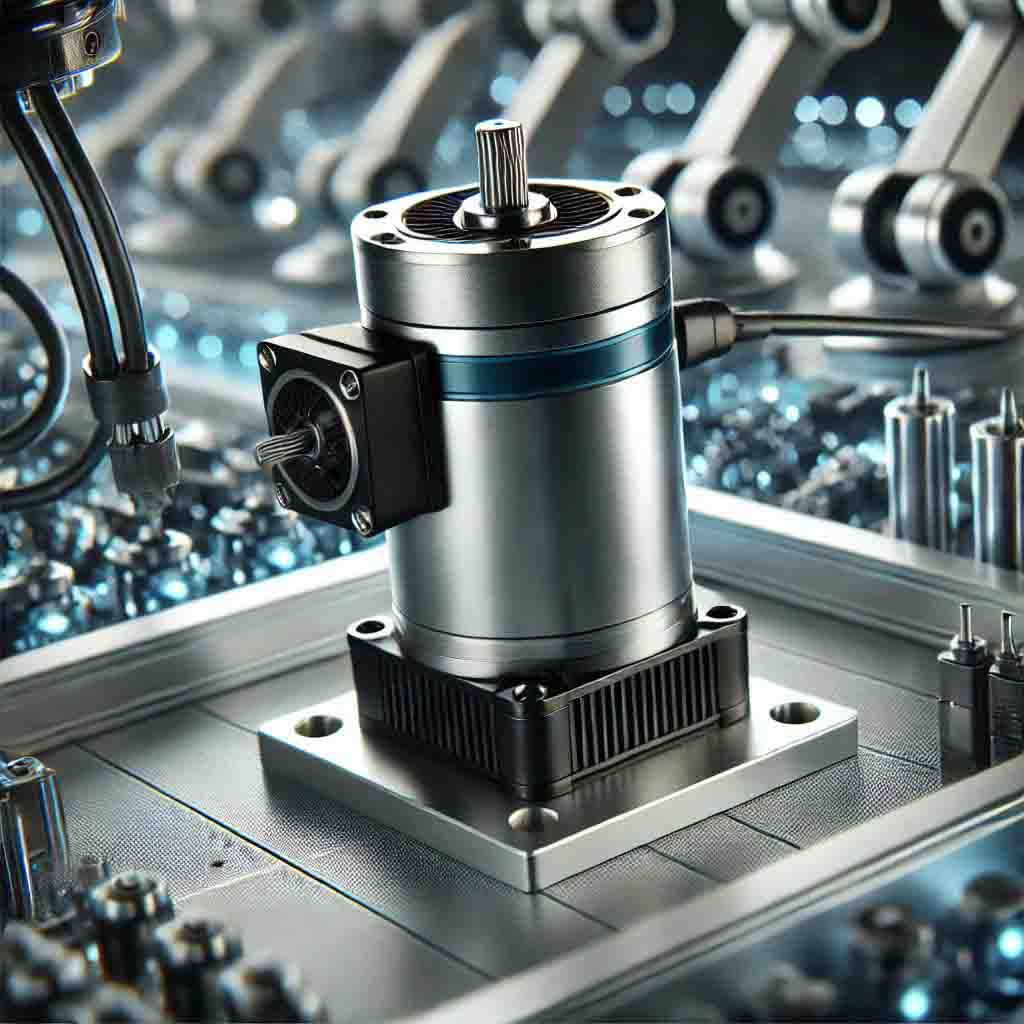Call Us Now
TEL: +86-4000988557;
Teams: gfreex@hotmail.com;
WeChat: Troysupply_com;
QQ ID: 8936906.

Servo controls are pivotal to the modern landscape of robotics, providing the essential mechanisms that allow robots to perform with exceptional precision and flexibility. Reliability in servo controls refers to their ability to consistently perform these functions with high accuracy, enduring durability, and swift responsiveness, which are all critical for both industrial and consumer robotics applications. This foundational reliability is what enables robots to carry out complex tasks ranging from assembly line operations to delicate surgical procedures with minimal human intervention.
At the heart of robotics, servo controls facilitate crucial functionalities such as movement, positioning, and automation. These systems allow robots to interpret and execute commands with exact movements, which is fundamental in environments where precision and repeatability are key. Reliable servo controls not only enhance the operational efficiency of robots but also extend their operational lifespan and reduce maintenance needs, thereby supporting more sustainable and cost-effective robotic applications.
Several factors play a significant role in determining the reliability of servo controls in robotics:
● Accuracy: Precision in control to ensure movements are carried out exactly as programmed.
● Durability: Ability to withstand repeated use over long periods without degradation.
● Response Time: Speed with which the servo controls react to commands.
● Power Efficiency: Optimization of energy use, contributing to longer operational periods and reduced operational costs.
● Compatibility with Different Systems: Ability to integrate and function seamlessly with various robotic systems.
● Environmental Robustness: Capability to operate under a range of environmental conditions including variations in temperature and humidity.
Understanding these factors is crucial for designing and selecting servo control systems that will perform reliably under the specific demands of different robotics applications.
Feedback mechanisms are integral to enhancing the precision and reliability of servo controls by continuously adjusting the control outputs based on real-time inputs. These mechanisms correct deviations from desired performance, thereby ensuring high reliability and accuracy.
Types of feedback mechanisms include:
● Position Feedback: Utilizes devices like encoders and resolvers to monitor the position of the servo motor.
● Velocity Feedback: Measures the speed at which the servo motor operates to adjust the velocity as needed.
● Torque Feedback: Monitors and adjusts the torque output of the servo motor to prevent over or under-application of power.
These feedback loops are fundamental for maintaining the precision required in sophisticated robotic applications, making them more reliable and effective.
A reliable servo control system comprises several critical components, each contributing to the overall performance and reliability of the system. Key components include:
● Servo Motor: The engine of the system, which executes the movement commands.
● Controller: The brain of the operation, which processes inputs and directs the motor.
● Encoder/Resolver: These devices provide vital feedback on the motor's position or speed.
● Power Supply: Ensures that all components receive the consistent, stable power they need.
● Communication Interface: Facilitates seamless interaction between the servo control system and other robotic components or external controllers.
Understanding these components and their interrelations is essential for building and maintaining reliable servo controls in robotics.
Motor design significantly impacts the reliability of servo controls. Choices between brushless DC motors and stepper motors affect the system's overall performance:
● Brushless DC Motors: Known for their efficiency and low maintenance, these motors use electronic commutation systems that reduce wear and tear, enhancing durability.
● Stepper Motors: Although cost-effective, they are generally less reliable in high-precision applications due to their susceptibility to resonance and less precise position control.
Key aspects such as thermal management, vibration resistance, and wear resistance are crucial in motor design. These factors ensure that the servo motor can operate reliably under varying operational stresses, thus extending the lifespan and performance of robotic systems.
Precision is paramount in servo control systems as it directly impacts the system's reliability and effectiveness in robotic applications. High precision in positioning and movement allows for:
● Enhanced performance accuracy, reducing errors in tasks such as assembly and machining.
● Improved reliability, as precise movements reduce the risk of mechanical wear and tear.
The intrinsic link between precision and reliability in servo systems underscores the importance of high-quality components and sophisticated control algorithms.

Servo controls bring several advantages to robotics, making them indispensable in many applications:
● High Precision: Allows for meticulous control over robotic movement.
● Fast Response Time: Enables quick reactions to control commands, essential in dynamic environments.
● Energy Efficiency: Minimizes power consumption, which is crucial for mobile or continuously operating robots.
● Low Maintenance: Reduces downtime and operating costs due to fewer mechanical failures.
● Versatility: Serves a wide range of applications, from small consumer robots to large industrial machines.
These advantages illustrate why servo controls are favored in the development and enhancement of robotic technologies.
Environmental conditions significantly influence the reliability of servo controls. Factors such as dust, moisture, and extreme temperatures can affect performance:
● High Temperatures: Can lead to overheating, affecting electronic and mechanical components.
● Humid or Wet Conditions: May cause corrosion or electrical shorts.
● Vibration and Shock Resistance: Essential for maintaining reliability in industrial environments.
● Dust and Particle Ingress: Proper sealing and protection are necessary to prevent contamination that could lead to premature wear or failure.

AC servo motors are renowned for their robustness and high power efficiency, making them suitable for high-performance applications in robotics. They offer excellent reliability in continuous duty applications and are typically used where precise control of speed and torque is critical. Their main advantages include:
● High reliability under variable load conditions.
● Efficient performance in a broad range of operating speeds.

DC servo motors are preferred for their precise control and faster response times. They are generally smaller and lighter than AC motors, which makes them ideal for applications where space and weight are limiting factors. However, they might require more maintenance due to brushes and commutators, affecting their long-term reliability. Their pros include:
● Precise control with faster response to commands.
● Compact size, making them ideal for smaller robotic systems.
Stepper motors provide a cost-effective solution with adequate performance for applications where extreme precision is not mandatory. Compared to servo motors, steppers are simpler and typically do not require feedback for position, which can simplify system design but at the cost of precision and reliability in demanding applications.
Pros and cons of each type include:
● Stepper Motors:
○ Pros: Cost-effective, simple to control.
○ Cons: Less accurate, prone to resonance issues which can impact performance.
● Servo Motors:
○ Pros: High precision, efficient performance across a range of speeds.
○ Cons: Generally more complex and costly.
Understanding these differences is essential when selecting the right type of motor for specific robotics applications, balancing cost, complexity, and reliability.
The integration of advanced software with servo controls is crucial for enhancing the reliability of robotics systems. Software solutions provide sophisticated capabilities such as motion planning, error detection, and real-time adjustments, which are vital for maintaining high performance and reliability. The role of real-time operating systems (RTOS) in servo control is particularly significant. RTOS systems ensure that servo controls receive and process sensor data within strict time constraints, which is critical for maintaining system stability and performance under dynamic conditions.
Servo systems can experience several common failures, but with proper maintenance and diagnostics, these can often be prevented:
● Overheating: Can be mitigated with adequate cooling systems and environmental controls.
● Excessive Wear on Components: Regular inspections and replacing parts before they fail can prevent this issue.
● Signal Interference: Shielding and proper wiring can reduce the risk.
● Power Surges: Using surge protectors and voltage regulators can protect sensitive components.
Predictive maintenance, involving the use of sensors and advanced analytics, allows for timely interventions before failures become critical, significantly enhancing reliability.
Safety is paramount in robotics, and servo controls contribute significantly to ensuring safe operations through integrated features like:
● Overload Protection: Prevents the motor from operating beyond its capacity.
● Fault Detection Systems: Quickly identifies and addresses operational anomalies.
● Emergency Stop Functions: Allows immediate shutdown of operations in case of danger.
● Fail-Safe Mechanisms: Ensures that the system reverts to a safe condition in the event of a failure.
These safety measures are not only crucial for protecting the hardware and preventing accidents but also for ensuring the reliability and trustworthiness of robotic systems in critical applications.

Designing a reliable servo control system requires meticulous planning and consideration of various factors to ensure optimal performance and longevity. Key design aspects include:
● Torque and Speed Matching: Properly matching the torque and speed specifications of the servo motor to the application's requirements ensures efficient operation and minimizes wear.
● Load Balancing: Even distribution of load across the servo system prevents overstressing specific components, enhancing durability.
● Power Efficiency: Optimizing the system for energy efficiency not only reduces operational costs but also decreases heat generation, which can affect component lifespan.
● Selecting the Right Encoder for Feedback: Choosing the appropriate encoder ensures accurate feedback, which is crucial for precision and reliability.
● Integration with Robotic Arm Controllers: Seamless integration with robotic controllers allows for more coherent and reliable operations.
These considerations are crucial for ensuring that servo controls operate reliably under the rigorous demands of robotic applications.
Reliable servo controls are pivotal across various industries where precision, efficiency, and automation are critical. Some of the key industries include:
● Automotive: For precision assembly lines and manufacturing processes.
● Manufacturing: Extensively used in CNC machines and other automated machinery.
● Medical: In surgical robots where precision and reliability can be life-saving.
● Aerospace: Used in robotic arms for intricate tasks requiring high accuracy.
● Consumer Electronics: For automated assembly lines that require high throughput with minimal errors.
These industries rely on advanced servo control systems to enhance productivity, maintain quality, and reduce costs.
Maintaining and troubleshooting servo controls is essential for ensuring long-term reliability and performance. Key steps include:
● Regular Calibration Checks: To ensure that all components are functioning correctly and accurately.
● Monitoring for Overheating: Implementing thermal management practices to prevent heat-related failures.
● Checking Encoder Alignment: Periodic checks to ensure that encoders are aligned correctly, which is crucial for accurate positioning.
● Diagnosing Power Supply Issues: Ensuring that the power supply consistently meets the system's requirements can prevent numerous issues.
● Cleaning and Lubrication Routines: Regular cleaning and appropriate lubrication of moving parts to reduce wear and tear.
Adhering to these maintenance practices helps in prolonging the life of servo controls and minimizing downtime due to failures.
Servo controls are the backbone of modern robotics, providing the precision, speed, and reliability needed to operate in complex and demanding environments. By understanding the components, design considerations, and maintenance practices that contribute to servo reliability, engineers can design systems that not only perform exceptionally but also maintain their performance over time. Looking forward, the evolution of servo technology will continue to play a crucial role in advancing robotics, making them more capable and accessible across a wider range of industries.
Servo Drive;
Servo Motor;
Robot Control system
 Online service
Online service 4000988557
4000988557 sales1@troysupply.com
sales1@troysupply.com sales2@troysupply.com
sales2@troysupply.com Richard Liu
Richard Liu TROY
TROY 8936906
8936906 Troysupply_com
Troysupply_com